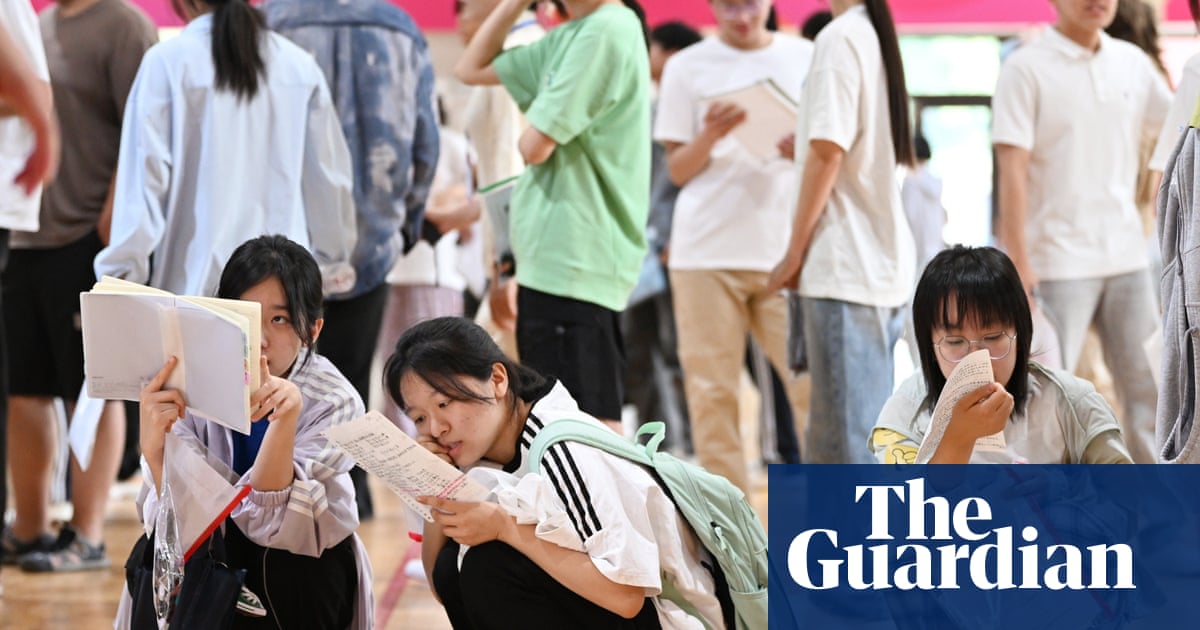Big Chinese tech companies appear to have turned off some AI functions to prevent cheating during the country’s highly competitive university entrance exams.
More than 13.3 million students are sitting the four-daygaokaoexams, which began on Saturday and determine if and where students can secure a limited place at university.
This year, students hoping to get some assistance from increasingly advanced AI tools have been stymied.
In screenshots shared online, one Chinese user posted a photo of an exam question to Doubao, owned by TikTok’s parent company, ByteDance. The app responded: “During the college entrance examination, according to relevant requirements, the question answering service will be suspended”.
An attempt by the user to tell the app “this is not the college entrance examination” prompted the same response.
Another screenshot also revealedDeepSeek, a leading generative AI toolnew to the Chinese market this year, was telling users that their service was not available during specific hours “to ensure fairness in the college entrance examination”.
Yuanbao, owned by the tech company Tencent, Alibaba’s Qwen, and Moonshot’s Kimi have also turned off their picture recognition functions during exam hours,Bloomberg reports.
The Guardian has contacted the relevant companies for comment, none of which have made public statements about the functions freeze. The suspension appears to have been publicised largely by university students who have been locked out of tools to assist them in their study and assignments.
“College entrance exam candidates, you are all shit,” read one tongue-in-cheek complaint on Weibo. “I can’t use DeepSeek to upload pictures, I have to download ChatGPT again, I hope you all go to community college.”
The AI suspension is not the only tool being used to prevent cheating in thegaokaoexam week, which can decide a young person’s entire future. Several regions have previously announced they would be using AI monitoring tools to watch for “abnormal behaviours”,such as whispers or repeated glancesbetween students, during exams.
In Jiangxi province, for example, footage will be reviewed after the exam and any violations or misconduct “dealt with strictly in accordance with relevant regulations”, the state-backed Global Times reports.
Late last month, Chinese authorities also announced stricter entry checks at exam points, biometric identification, enhanced screening for digital devices, and radio signal blockers, state media reported.
Reflecting how seriously Chinese society views thegaokao, some cities have postponed disruptive events such as public performances, delayed office starting hours and created dedicated priority traffic lanes to ensure students arrive to the test on time.
Additional research by Jason Tzu Kuan Lu
